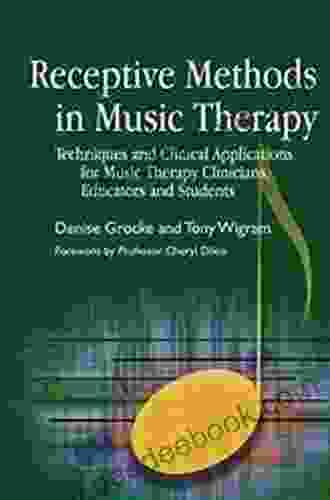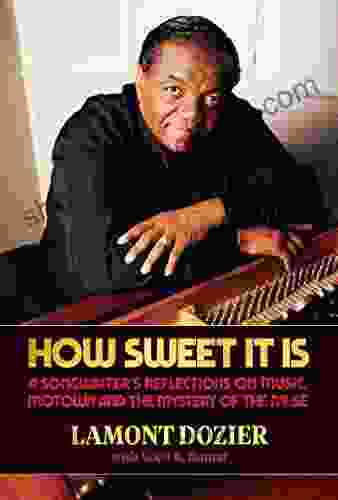Methods, Techniques, and Clinical Applications for Music Therapy Clinicians

Music therapy is a clinical and evidence-based practice that uses music interventions to address the physical, emotional, cognitive, and social needs of individuals. Music therapists use a variety of methods and techniques to achieve their therapeutic goals, which may include improving communication, reducing stress, promoting relaxation, and facilitating self-expression.
The use of music for therapeutic purposes has a long history, dating back to ancient civilizations. In ancient Greece, music was used to treat mental illness, and in China, music was used to promote physical and emotional well-being. In the 19th century, music began to be used in hospitals and other healthcare settings to provide comfort and support to patients. In the 20th century, music therapy became a recognized profession, and the first music therapy training programs were established.
There are a number of different theoretical orientations that guide the practice of music therapy. These orientations include:
5 out of 5
| Language | : | English |
| File size | : | 6952 KB |
| Text-to-Speech | : | Enabled |
| Screen Reader | : | Supported |
| Enhanced typesetting | : | Enabled |
| Word Wise | : | Enabled |
| Print length | : | 287 pages |
- Psychoanalytic: This orientation views music therapy as a form of psychotherapy that can help to resolve unconscious conflicts and promote emotional healing.
- Behavioral: This orientation views music therapy as a way to change behavior by reinforcing desired behaviors and punishing undesired behaviors.
- Humanistic: This orientation views music therapy as a way to promote self-actualization and personal growth.
- Neurological: This orientation views music therapy as a way to stimulate the brain and improve cognitive and physical functioning.
The music therapy assessment and treatment process typically involves the following steps:
- Initial Assessment: The music therapist meets with the client to gather information about their needs and goals. This information is used to develop a treatment plan.
- Treatment Planning: The music therapist and client work together to develop a treatment plan that outlines the specific music interventions that will be used to achieve the client's goals.
- Treatment Implementation: The music therapist implements the treatment plan by using a variety of music interventions, such as singing, playing instruments, listening to music, and songwriting.
- Evaluation: The music therapist evaluates the client's progress towards their goals and makes adjustments to the treatment plan as needed.
There is a growing body of evidence-based research that supports the use of music therapy for a variety of clinical populations. This research has shown that music therapy can be effective in reducing stress, improving mood, reducing pain, and promoting relaxation. Music therapy has also been shown to be effective in treating a variety of mental health conditions, such as depression, anxiety, and dementia.
Music therapy is used to treat a variety of clinical populations, including:
- Children: Music therapy can be used to help children with developmental disabilities, learning disabilities, and behavioral problems.
- Adults: Music therapy can be used to help adults with mental health conditions, chronic pain, and other health conditions.
- Older Adults: Music therapy can be used to help older adults with dementia, Alzheimer's disease, and other age-related conditions.
Music therapy is a clinical and evidence-based practice that can be used to treat a variety of clinical populations. Music therapy can help to improve communication, reduce stress, promote relaxation, and facilitate self-expression. If you are interested in learning more about music therapy, please contact a qualified music therapist in your area.
5 out of 5
| Language | : | English |
| File size | : | 6952 KB |
| Text-to-Speech | : | Enabled |
| Screen Reader | : | Supported |
| Enhanced typesetting | : | Enabled |
| Word Wise | : | Enabled |
| Print length | : | 287 pages |
Do you want to contribute by writing guest posts on this blog?
Please contact us and send us a resume of previous articles that you have written.
 Book
Book Novel
Novel Page
Page Chapter
Chapter Story
Story Genre
Genre Library
Library Paperback
Paperback Magazine
Magazine Newspaper
Newspaper Bookmark
Bookmark Glossary
Glossary Foreword
Foreword Preface
Preface Synopsis
Synopsis Footnote
Footnote Manuscript
Manuscript Scroll
Scroll Codex
Codex Tome
Tome Bestseller
Bestseller Classics
Classics Biography
Biography Memoir
Memoir Encyclopedia
Encyclopedia Character
Character Librarian
Librarian Card Catalog
Card Catalog Archives
Archives Periodicals
Periodicals Scholarly
Scholarly Lending
Lending Reserve
Reserve Journals
Journals Rare Books
Rare Books Special Collections
Special Collections Interlibrary
Interlibrary Literacy
Literacy Storytelling
Storytelling Awards
Awards Barbara L Murphy
Barbara L Murphy Elizabeth Scott
Elizabeth Scott Meta Washington
Meta Washington Karen Rose Smith
Karen Rose Smith Anne Rice
Anne Rice Daniel Wrinn
Daniel Wrinn Cristiano Nogueira
Cristiano Nogueira Tinotenda Chibebe
Tinotenda Chibebe Anna Schober
Anna Schober Nicholas Rombes
Nicholas Rombes Sandip Roy
Sandip Roy Annie Hesse
Annie Hesse Edward Vidaurre
Edward Vidaurre J K Winn
J K Winn Caroline Slocock
Caroline Slocock Rodolphe Meyer
Rodolphe Meyer Mary Kendall
Mary Kendall John U Bacon
John U Bacon Timothy Hallinan
Timothy Hallinan Gerry Kerkhof
Gerry Kerkhof
Light bulbAdvertise smarter! Our strategic ad space ensures maximum exposure. Reserve your spot today!
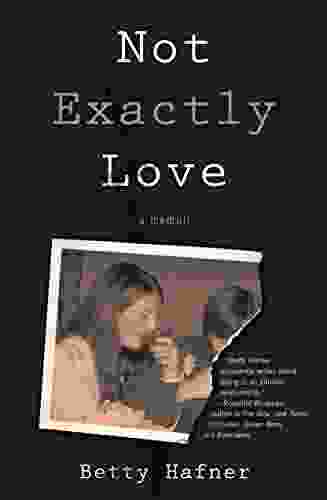
 Casey BellNot Exactly Love: A Memoir of Unconventional Relationships and the Search for...
Casey BellNot Exactly Love: A Memoir of Unconventional Relationships and the Search for... Corey HayesFollow ·14.8k
Corey HayesFollow ·14.8k Thomas PynchonFollow ·19.7k
Thomas PynchonFollow ·19.7k Kenneth ParkerFollow ·16.9k
Kenneth ParkerFollow ·16.9k Earl WilliamsFollow ·14.8k
Earl WilliamsFollow ·14.8k Jared PowellFollow ·11.3k
Jared PowellFollow ·11.3k Xavier BellFollow ·10.5k
Xavier BellFollow ·10.5k Jordan BlairFollow ·19.3k
Jordan BlairFollow ·19.3k Barry BryantFollow ·9.8k
Barry BryantFollow ·9.8k

 Beau Carter
Beau CarterLater Political Writings: A Window into the Evolution of...
Political thought, like...

 Tyrone Powell
Tyrone PowellThe Essential Guide to Family School Partnerships:...
: The Importance of...

 Christian Barnes
Christian BarnesAdvancing Folkloristics: Conversations with Jesse...
Dr. Jesse Fivecoate is an...
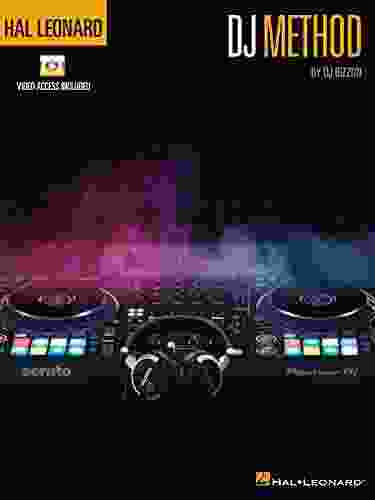
 Jake Carter
Jake CarterHal Leonard DJ Method Connell Barrett: A Comprehensive...
Are you ready...
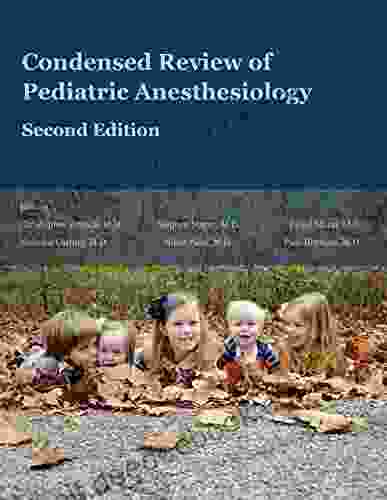
 John Updike
John UpdikeCondensed Review of Pediatric Anesthesiology Second...
Condensed Review of...
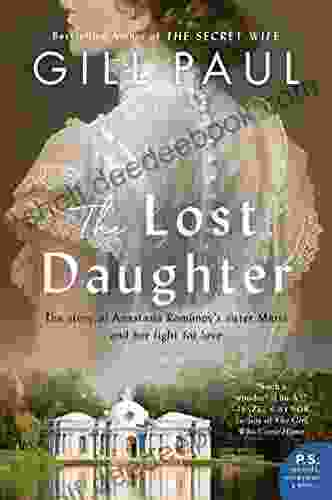
 Guillermo Blair
Guillermo BlairExploring the Complexities of Motherhood and Identity: A...
Elena Ferrante's "The Lost...
5 out of 5
| Language | : | English |
| File size | : | 6952 KB |
| Text-to-Speech | : | Enabled |
| Screen Reader | : | Supported |
| Enhanced typesetting | : | Enabled |
| Word Wise | : | Enabled |
| Print length | : | 287 pages |


